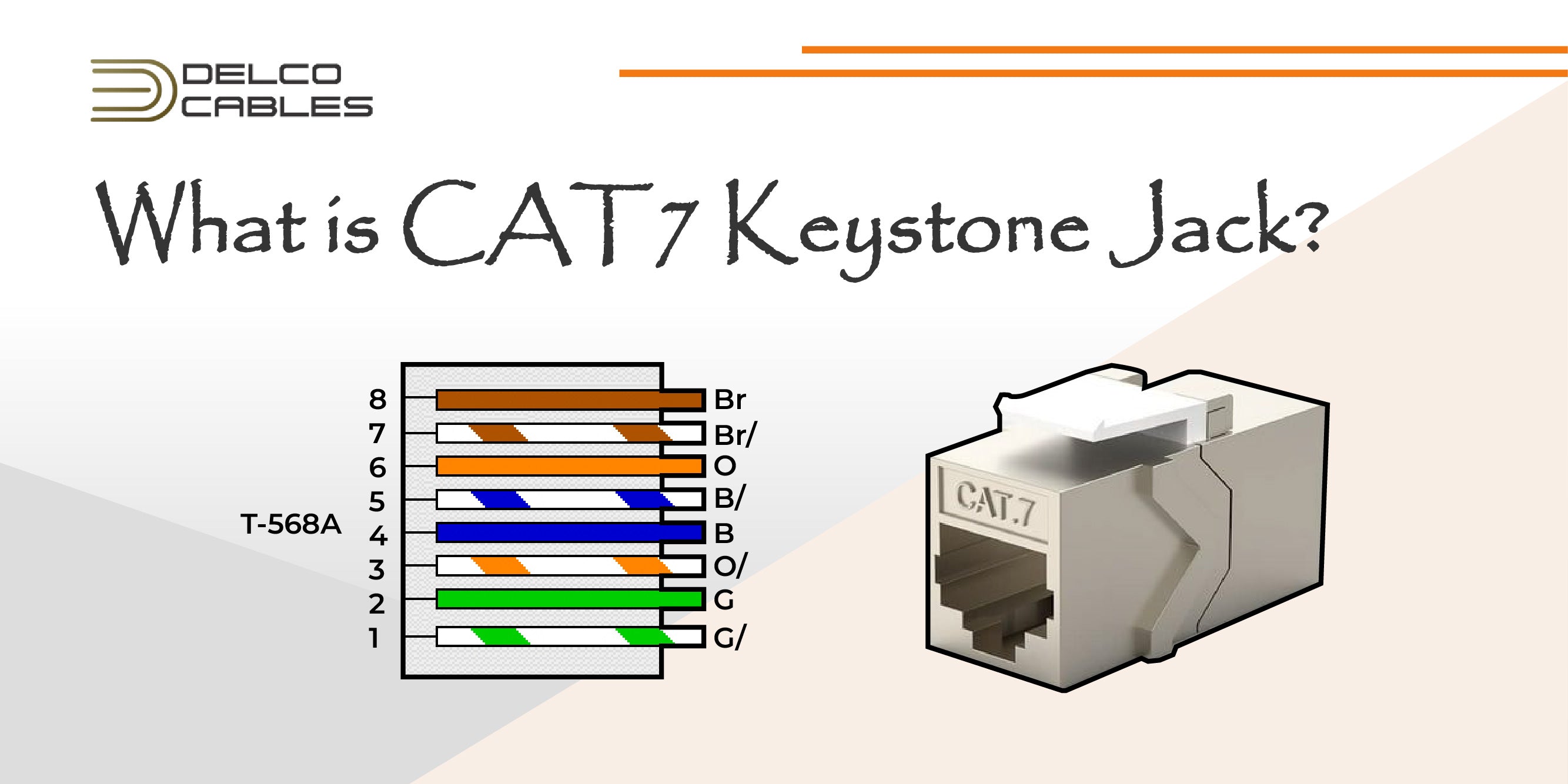Are you looking for a high-speed and reliable solution for your internet connectivity needs? If yes, then the cat7 cable is the state-of-the-art innovation that you can consider for your data transmission needs. The design of the cat7 allows it to support up to 10 Gbps ethernet.
However, it can transmit up to 40 Gbps at 50 meters and even 100 Gbps at 15 meters. The key element of this ethernet connection is the CAT7 RJ45 jacks that connect with the cable. This article will provide you with a better what a keystone ethernet cat7 jack is and the benefits it offers. So, without further ado, let's get right into it.
Cat7 Keystone Jack: A High-Performance Network Solution
A Cat7 keystone jack is a high-performance network element that supports data transfer speeds of up to 10 Gigabits per second (10 Gbps). The design of the CAT7 RJ45 keystone jack gives it an edge over its predecessors.
It's a crucial element in building robust and future-proof network infrastructures. Here are some of the key features of a cat7 keystone jack that you need to know.
- High-Speed Performance - Cat7 jacks are engineered to handle the demands of high-speed data transfer. As a result, it makes them a suitable option for demanding applications like video streaming, online gaming, and large file transfers.
- Enhanced Shielding - To ensure optimal performance and reduce interference, Cat7 jacks often incorporate advanced shielding techniques, such as shielded twisted-pair (STP) or fully shielded (F/STP) designs.
- Backward Compatibility - While designed for Cat7 cables, Cat7 jacks can typically accommodate lower-category cables like Cat6a, Cat6, and Cat5e. However, using a lower-category cable will limit the network speed to the cable's capabilities.
- Installation - Similar to other keystone jacks, Cat7 jacks require a punch-down tool for terminating the Ethernet cable.
Benefits of Using Cat7 Keystone Jacks
So, what benefits can you get from having a CAT7 RJ45 keystone jack and a cable installed for your networking needs? Well, here are a few of them:
- Future-Proofing - By investing in Cat7 technology, you're preparing your network for future high-speed applications.
- Improved Performance - The enhanced shielding and higher bandwidth capabilities of Cat7 jacks lead to better overall network performance.
- Versatility - You can use the Cat7 jacks in various network configurations, such as home networks, offices, data centers, and a lot more.
- Compatibility - While designed for Cat7 cables, they can accommodate lower-category cables.
Bottom line: Should You Choose the Cat7 Keystone Jack and Cable
It is safe to say that Cat7 keystone jacks are essential for building high-performance networks that can handle demanding applications. By understanding their features and benefits, you can make informed decisions when designing or upgrading your network infrastructure.
And if you do plan to build a cat7 infrastructure for your business or home, then Delco Cables is here to help you out. Our extensive range of high-quality products ensures you can find the right one at a reasonable price. From the Cat 7 RJ45 connector, jack, and cable, we're a one-stop solution for all your needs.
FAQs
What is a Cat7 keystone jack used for?
A Cat7 keystone jack is designed for high-speed network connections, specifically supporting data transfer rates up to 10 Gbps. It's commonly used in demanding network environments like data centers, server rooms, and high-performance home networks.
What is the difference between the Cat7 keystone jack and the Cat6 jack?
The primary difference between Cat7 and Cat6 keystone jacks lies in their performance capabilities. Cat7 jacks offer higher bandwidth, improved shielding, and support for longer cable runs, making them suitable for demanding network applications. Cat6 jacks, while still capable of high speeds, are generally used in less demanding environments.
Does CAT7a keystone jack use RJ45?
Yes, both Cat6 and Cat7 keystone jacks use the RJ45 connector, which is the standard interface for Ethernet cables.
Can I plug the Cat7 jack into the Cat6 jack?
Though it is physically possible to plug a Cat7 jack into a Cat6 jack, it is not recommended to do so. This is because the Cat7 jacks have a design to support higher performance standards, and using them with a Cat6 jack might compromise network speed and stability.





